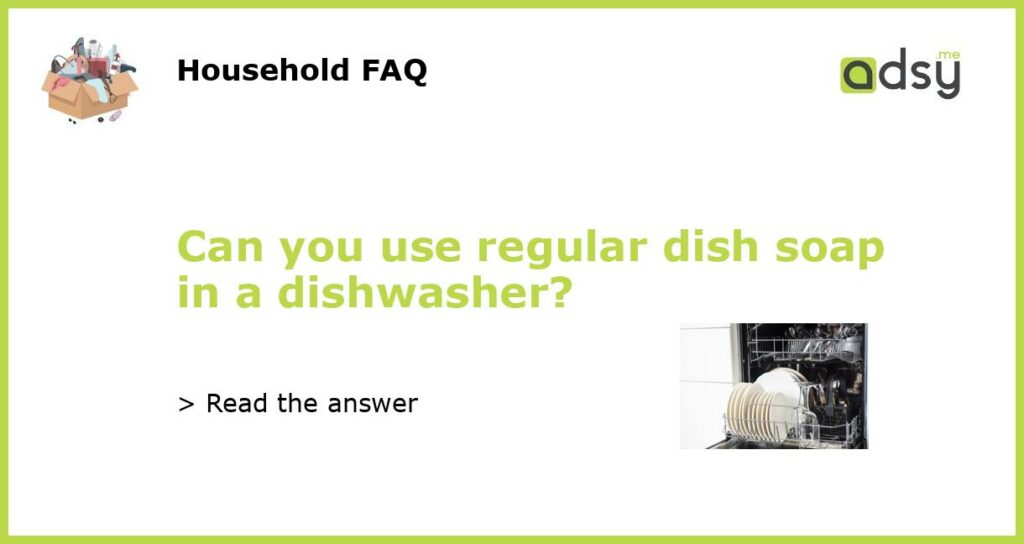Yes, you can use regular dish soap in a dishwasher, but it’s not recommended
Using regular dish soap in a dishwasher may seem like a convenient solution in a pinch, but it can lead to disastrous results. Dishwashers are designed to work with specific types of detergent that are formulated to create less suds and clean effectively in the high-temperature and high-pressure environment of a dishwasher. Regular dish soap, on the other hand, creates excessive suds and can damage the dishwasher, leaving behind a mess and potentially costly repairs.
The science behind dishwashing detergents
Dishwasher detergents are specifically designed to break down food particles and grease, remove stains, and prevent redepositing of food residues on the dishes. They contain enzymes, surfactants, and other ingredients that work efficiently in the dishwasher’s cycle. Regular dish soaps, on the other hand, are formulated to clean dishes by hand, and these soaps usually create a lot of suds, which can lead to overflow and damage the dishwasher’s components.
Potential problems with using regular dish soap
Using regular dish soap in a dishwasher can cause several problems, including:
- Suds overflow: Regular dish soap creates excessive suds when mixed with the water and the high-pressure environment of the dishwasher. This can cause the dishwasher to overflow, leading to a big messy clean-up.
- Damaged dishwasher components: The excess suds can clog the dishwasher’s pump and spray arms, leading to decreased performance and potential damage to important components of the dishwasher.
- Residue on dishes: The wrong type of soap can leave behind a residue on your dishes, making them look dull and unclean. Your dishes may also retain a soapy taste or smell.
- Potential expensive repairs: If you use regular dish soap in your dishwasher frequently, it can cause long-term damage to the dishwasher’s components, leading to costly repairs or the need to replace the entire unit.
Safer alternatives to regular dish soap
If you’re out of dishwasher detergent, there are a few safer alternatives you can use:
- Baking soda and vinegar: Sprinkle a cup of baking soda in the bottom of the dishwasher and add a cup of white vinegar to the bottom of the dishwasher. Run a short, hot water cycle to clean and deodorize the dishwasher, then wipe away any remaining residue.
- Citric acid: Use a tablespoon of citric acid dissolved in a cup of hot water instead of dishwasher detergent. Citric acid helps remove mineral deposits and is a natural cleaner.
- Dishwashing pods designed for handwashing: If you don’t have dishwasher detergent, use a dishwashing pod specifically designed for handwashing. These pods create fewer bubbles and are less likely to cause issues in your dishwasher.
By using the right detergent, you can keep your dishwasher running smoothly
To ensure the performance and longevity of your dishwasher, it’s essential to use the right detergent. While regular dish soap may seem like a convenient alternative, it can cause problems and potentially damage your machine. Stick to using dishwasher detergents specifically designed for your appliance, and if you’re in a bind, opt for safer alternatives like baking soda, vinegar, or citric acid. Taking these precautions will help you avoid costly repairs and keep your dishwasher running smoothly for years to come.






